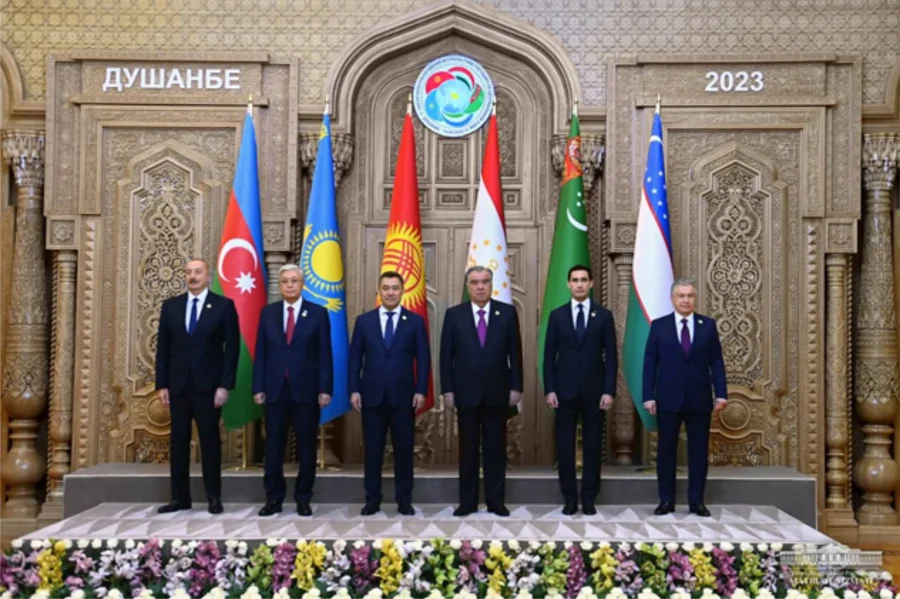Central Asia in recent years hasentered a new stage in the development of cooperation with foreign policy partners and international organizations, among which the United Nations occupies an important place.
The President of the Republic of UzbekistanShavkat Mirziyoyev, addressing the world community at the 75th session of the UN General Assembly in September 2020, noted the importance of strengthening cooperation in ensuring the security of Central Asia. Active interaction with the United Nations and its specialized agencies has enabled the countries of Central Asia significantly to strengthen their potential in matters of security and sustainable development and to draw the attention of the world community to the problems existing in the region in these spheres.
The UN Development Program (UNDP), the UN Office on Drugs and Crime (UNODC), the UN Regional Center for Preventive Diplomacy for Central Asia (UNRCCA), the United Nations Population Fund (UNFPA), the United Nations Children’s Fund (UNICEF), WHO, UNESCO, ILO, FAO, the International Organization for Migration (IOM), etc. are active in Central Asia today.

The states of the region have made significant progress in finding solutions to many pressing problems of regional development and security during the period of cooperation between the Central Asian countries and the UN. Among them are the establishment of a nuclear-weapon-free zone in Central Asia, active participation in international settlement efforts in Afghanistan, adoption and implementation of the Joint Action Plan of the Central Asian countries for the implementation of the UN Global Counter-Terrorism Strategy, establishment of the Central Asian Regional Information and Coordination Center for Combating Illicit Trafficking in Narcotic Drugs, Psychotropic Substances and their Precursors (CARICC), creation of the UN Special Commission on the Aral Sea, and adoption of the United Nations Millennium Development Goals (MDGs).
The initiative of Tashkent to establish a nuclear-weapon-free zone in Central Asia (CANWFZ), launched from the tribune of the UN General Assembly in 1993, was an important contribution to strengthening the global non-proliferation regime and regional security. The Treaty on CANWFZ, signed in September 2006 in Semipalatinsk, entered into force in 2009. The signing by the “five” nuclear-weapon states of the most important international document – the Protocol on Security Assurances to the Treaty on the Central Asian Nuclear Weapons Treaty – was a historic event. Thus, Central Asia became the only nuclear-weapon-free zone in the northern hemisphere.
Cooperation with the UN has now reached a whole new level as a result of the process of intensifying regional cooperation in the political, trade, economic, cultural and humanitarian spheres launched in 2017. Among the main challenges that the Central Asian countries and the UN are jointly overcoming are the problems of stabilizing the situation in Afghanistan, countering the threats of terrorism and extremism, radicalization, drug trafficking and organized crime, solving urgent problems in the areas of environmental and water security, etc.
The adoption in June 2018 by the UNGA of the historically important resolution “Strengthening regional international cooperation to ensure peace, stability and sustainable development in the Central Asian region”, initiated by the President of the Republic of Uzbekistan, was a vivid confirmation of the broad international support for regional cooperation on security and development of Central Asia.
The promotion of the peace settlement process in Afghanistan remains an important aspect of cooperation between the states of the region and the United Nations.Uzbekistan and the countries of the region pay special attention to efforts to engage Afghanistan in regional trade and economic ties designed to promote peace and stability in the country. The intensification of Central Asian countries’ participation in international efforts to settle and stabilize Afghanistan was facilitated by the holding of the High-Level International Conference on Afghanistan “Peace Process, Security Cooperation and Regional Cooperation” in March 2018 at the initiative of the President of Uzbekistan Shavkat Mirziyoyev.
[ZilolaYunusova,Head of Department, Center for International Relations Studies, MFA of the Republic of Uzbekistan Oleg Limanov,Chief Researcher of the Center for International Relations Studies, MFA of the Republic of Uzbekistan.]










